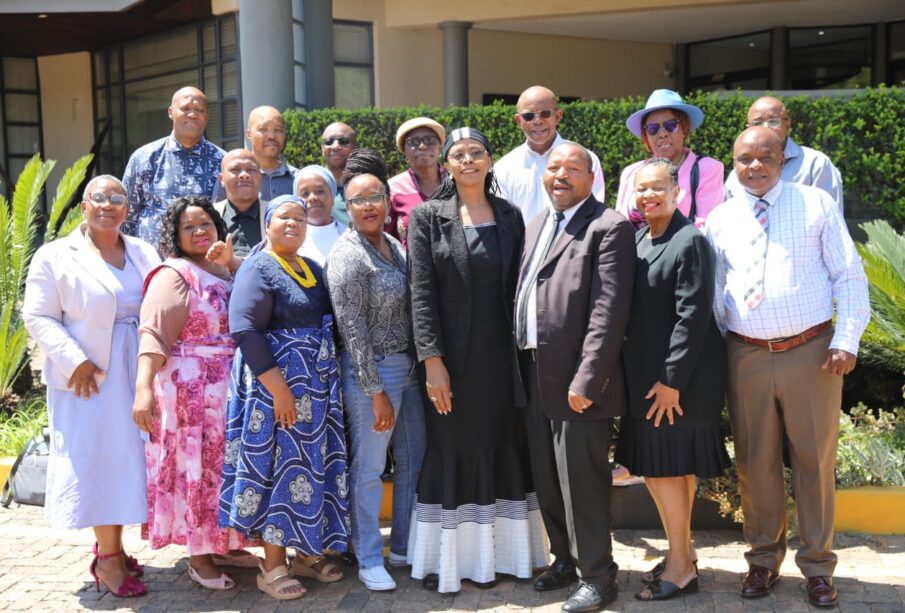
By Sello Tang
- The Central Drug Authority (CDA) is intensifying efforts to combat South Africa’s rising substance abuse and drug trafficking crisis, which has severe impacts on public health and safety, particularly among youth.
- During a recent three-day Strategic Planning Session, the CDA reviewed progress on the National Drug Master Plan and discussed strategies for improving the country’s response, including stronger partnerships, improved funding, and more targeted local interventions.
- Key CDA goals include reducing drug demand and supply, fostering interdepartmental collaboration, and expanding community-based programs, all while prioritising measurable impacts and the needs of affected communities.
Substance abuse and drug trafficking in South Africa have reached alarming levels and require a robust government response to address these social challenges, according to Ms Nandi Mayathula-Khoza, Chairperson of the Central Drug Authority (CDA).
Ms Mayathula-Khoza was speaking at the three-day Strategic Planning Session held from 29–31 October at the Kopanong Hotel and Conference Centre in Benoni, Gauteng Province. The session was organised to evaluate the performance and implementation of the National Drug Master Plan 2019–2024, as well as the outcomes of the 3rd National Summit on Substance Abuse and Illicit Trafficking held in 2023.
“This planning session also seeks to review the CDA’s strategic goals to best address the complex challenges on the ground,” she noted. “We’re reflecting on concerns over the lack of urgency from government in tackling substance abuse and illicit drug trafficking, which devastate South African lives—especially youth suffering from drug-induced psychosis and overdose, as well as families affected by this national crisis.”
The discussions also addressed the connection between substance abuse and other societal issues, including the impact of alcohol and drug abuse on gender-based violence and femicide. “There is a widespread perception that the government’s response does not fully reach the scale of the drug problem in the country,” Ms Mayathula-Khoza acknowledged.
Despite CDA’s initiatives, communities have urged the government to prioritise rising levels of drug abuse and its effects on families, ensuring adequate budget allocations for these initiatives. “We’ll be looking at how to strengthen the capacity of departments and entities responsible for tackling this issue,” she added, noting that they were encouraged by the Minister’s commitment to address these concerns and provide guidance on future activities.
The CDA and the Department of Social Development (DSD), as the leading department, have prioritised key areas including Demand Reduction (Goal 1), Supply Reduction (Goal 2), Governance, Leadership and Accountability (Goal 5), and Strategic Information (Goal 6). Efforts are also underway to review CDA’s policies and update its vision and mission to include illicit drug trafficking within its scope.
Deputy Chairperson Ms Nomcebo Dlamini announced that CDA plans to integrate the goals of the National Drug Master Plan (NDMP) into the District Development Model (DDM) to improve local-level intervention delivery. She stated that CDA, along with the DSD, has identified NDMP goals 1, 5, 6, and 7 as closely related to their mandate and will translate these into actionable items within the DDMs.
Ms Dlamini highlighted CDA’s key achievements from 2019 to 2024, including the establishment of 97 Local Drug Action Committees (LDACs) across municipalities, awareness campaigns reaching millions of high-risk individuals, collaborations with law enforcement for raids and closures of illegal establishments, and partnerships with entities such as the UNODC to implement harm reduction initiatives. However, she noted that some LDACs are not fully operational due to limited funding and a lack of local coordination, affecting the rollout of comprehensive harm reduction programs in certain areas.
Other challenges identified include resource constraints, limited inter-departmental collaboration, insufficient data collection, and stigma towards people with substance use disorders, which has hindered harm reduction program acceptance and implementation. Ms Dlamini emphasised that improving LDAC functionality is a top priority. “Out of the 257 LDACs, we aim to have 165 fully functional, supported by municipal mayors,” she added, commending the government’s plan to reinstate the Inter-Ministerial Committee (IMC) to secure political commitment, accountability, and collaborative effort.
Key areas for improvement include developing a national research agenda to enhance data collection, establishing international and multi-sector collaborations, increasing resource mobilisation, and bolstering the CDA secretariat with technology and innovation.
The CDA, which currently works with 21 government departments and 11 non-profit organisations, concludes the Strategic Planning Session today, 31 October 2024, with an Annual Performance Plan set for submission to the Minister for concurrence and guidance.














